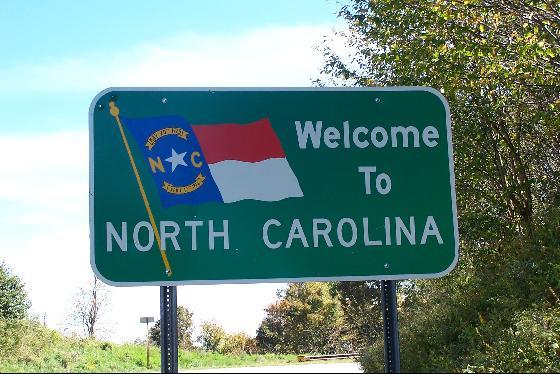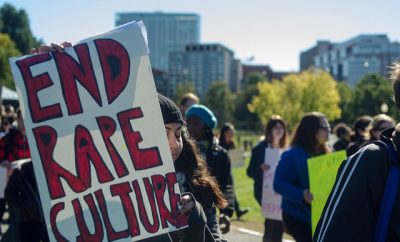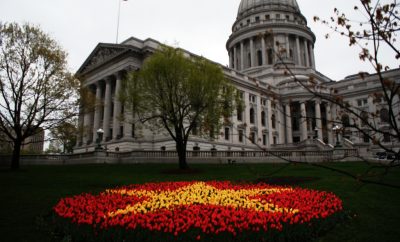 Image courtesy of [J. Stephen Conn via Flickr]
Image courtesy of [J. Stephen Conn via Flickr]
News
How Will Same-Sex Couples Be Affected by North Carolina’s Newest Law?
The North Carolina House of Representatives voted to override Governor Pat McCrory’s veto of Senate Bill 2 on Thursday, a move that will allow officials to abstain from performing marriages that conflict with their beliefs. Magistrates may now refuse to perform marriages and deed registrars can refuse to issue certificates for couples if they have a “sincerely held religious objection.”
Both the senate and the house voted to override the governor’s veto in the last two weeks, making the bill North Carolina law. Under the new law, once a magistrate claims a religious objection he or she cannot perform marriages for a six-month period, after which the district court judge may allow them to resume their duties.
McCrory vetoed the bill following a district court ruling earlier this year that struck down North Carolina’s Amendment 1, a constitutional amendment defining marriage as between a man and a woman. After the court’s ruling, McCrory vowed to uphold the decision despite his personal opinions of the issue. In a statement shortly before his recent veto, he said,
Whether it is the president, governor, mayor, a law enforcement officer, or magistrate, no public official who voluntarily swears to support and defend the Constitution and to discharge all duties of their office should be exempt from upholding that oath; therefore, I will veto Senate Bill 2.
Some citizens and members of the state senate disagree with McCrory’s stance. Senate Leader Phil Berger commented that “if someone takes a job, they don’t park their First Amendment rights at the door. They are entitled to exercise those rights.”
The law stirred up controversy over the intersection of personal religious beliefs and the rights of LGBT citizens. Supporters of marriage equality point to the law as another way to set up roadblocks for same-sex couples. In the time leading up to an important Supreme Court ruling on marriage equality, North Carolinians who support gay marriage accuse the state legislature of preemptively seeking loopholes.
Despite some media coverage, the law is not as radical as opponents may claim, especially because it states that all couples who are issued a marriage license will be given a magistrate to marry them. This means that same-sex couples will still be granted licenses, but individual magistrates may now claim an exemption from the process. This law is not as expansive as some other religious liberty laws, such as Indiana’s Religious Freedom Restoration Act (RFRA), which saw a significant backlash after its passage. North Carolina’s law places the burden on individual magistrates to claim an objection then wait the six-month period before performing marriages, rather than allowing for blanket exceptions.
Although this law likely will not hinder same-sex marriages in North Carolina, the message and precedent behind it are still important. Allowing public officials to exempt themselves from laws that bind other citizens is a complicated issue. But as McCrory and Berger’s opinions reveal, there is a significant divide among people over the supremacy of religious beliefs. It makes sense, as Governor McCrory stated, to require public officials to fulfill their sworn duties regardless of their personal opinions. Even in the strongest religious liberty protections, a “compelling government interest” can supersede religion. Although it is seen as one of the strongest and most unalienable rights, religious liberty–both in the courts and in the legislature–has never had supreme authority. The question then remains: where does personal freedom end and civic duty begin? That debate is far from decided.








Comments